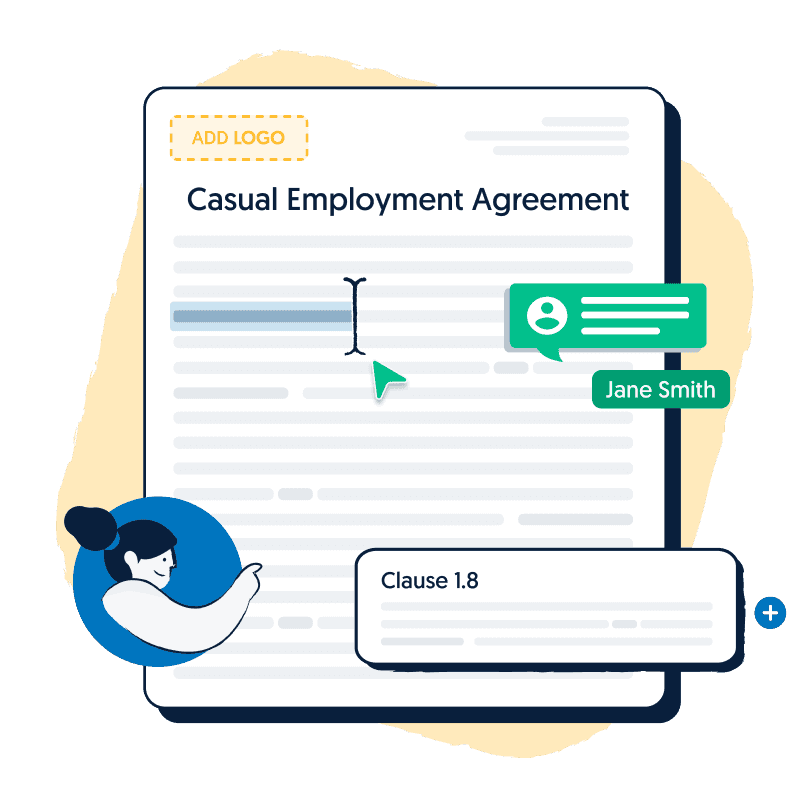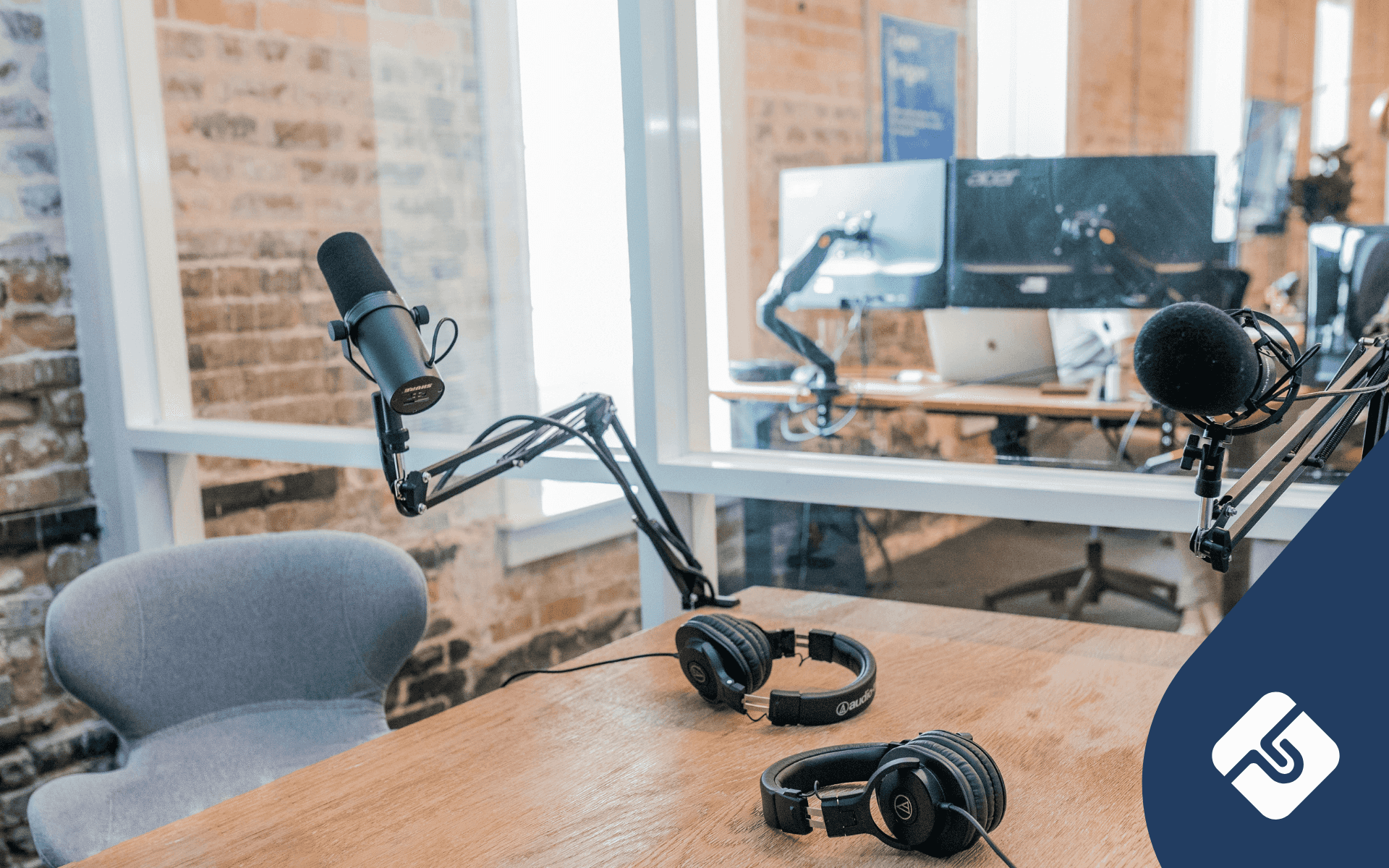Based in Sydney, Raja is a law student enrolled in a Bachelor of Laws and Bachelor of Communications (Writing and Publishing) at the University of Technology Sydney. He is passionate about transferring knowledge in relation to businesses, legal advice and marketing direction. Raja has experience working in immigration law and is driven by the writing, editing and publishing process of content.
Podcasts are digital audio or video files available for streaming or download. Often released as a series with episodes, podcasts are centred around specific themes or topics. They can cover a wide range of subjects, including news, storytelling, education, entertainment, interviews, and niche interests.
Podcasts offer listeners the convenience of consuming content on-demand, allowing them to listen at their own pace and on various devices.
In recent years, the number of podcast listeners has significantly increased. This growth is driven by factors such as the proliferation of smartphones, the ease of access to podcasts through various platforms like Apple Podcasts, Spotify, and Google Podcasts, and the diverse range of content available. The COVID-19 pandemic and the associated lockdowns all over the world also played a huge role in increasing podcast consumption as people sought new forms of entertainment and education while spending more time at home.
As the listener base for podcasts grew to accommodate people from different demographics, advertisers’ interests also grew. With more and more marketers willing to pay for sponsored ads to be hosted on podcasts, podcasting has moved from a simple pastime to a reasonably profitable venture.
If you’re considering starting a podcast, you might have questions about where to begin. This guide explains the basic steps involved in setting up a thriving podcast through which you can express your views, build a loyal listener base, and possibly earn some money. Keep reading to learn more.
Why Should I Start a Podcast?
Starting a podcast is a good idea, but it’s not something to embark on on a whim. You need to be sure of your why and clearly define what you hope to achieve by this venture.
Some of the common reasons for starting a podcast include:
As a Side Hustle
As stated earlier, podcasts can generate additional income for their organisers through sponsorships, advertisements, and listener donations. With dedication and a growing audience, your podcast can become a profitable venture in the near future.
To Promote an Existing Business
If you already have an existing business, starting a podcast related to that business is a good way to subtly advertise and build your clientele. By sharing relevant information and trends related to your business, you can showcase your products or services, attract customers, and establish your brand’s position in the market.
To Express Your Creativity
If you have creative talents that you’d like to share with the world, podcasting is a good place to start. You can set up a podcast to share your passion, hobbies, or skills with a wider audience and gradually build a reputation of proficiency for yourself in your chosen field.
Podcasts can also help build confidence and a sense of community for people who feel isolated or struggle with public speaking. But whatever your reason for starting one, you must ensure that it is one you can live with and strong enough to keep you going when things (podcasting) get tough.
Identifying your goals also helps you decide on a niche early on, which is crucial to building a dedicated listener base. But you must be realistic about them. Building a podcast is a job that requires you to practice delayed gratification. Unless you’re a celebrity with a large fan base, Expecting your podcast to become popular and attract sponsorships immediately might lead to disappointment. You must be prepared to grow your audience gradually so you can reap the rewards in the future.

Get your Casual Employment Agreement now for free.
Hire casual employees in any industry. This Employment Agreement (Casual) is essential when hiring new employees for your business.
How to Start a Podcast
Starting a podcast might seem difficult, especially if you’ve never done anything like that before. To help you get started, we’ve broken down the information you need to begin into the following short steps:
Choose a Podcast Topic and Name
The first step to building a thriving podcast is to choose a topic and name for your brand.
It’s very easy for listeners to lose interest. So you need to take some time and choose a topic that you’re passionate about, that will excite your listeners, and that you can leverage in the long term.
Choosing a podcast topic early on is also important as it helps you narrow down your unique niche.
Deciding on a niche when starting out helps you target a specific audience, making your content more relevant and engaging to listeners. A well-defined niche allows you to stand out in a crowded market, establish expertise, and build a loyal, dedicated listener base. It also makes marketing and content creation more focused and efficient, increasing the chances of your podcast’s success.
If you’re not sure what your topic/niche should be, here are a few ideas for you to explore
- True Crime: You could explore real-life crimes, unsolved mysteries, famous criminal cases, or the forensic science used in criminal cases.
- Personal Finance: If you’re into personal finance, your podcast topic could include tips on budgeting, investing, and achieving financial independence.
- Technology and Gadgets: You could do gadget reviews, tech industry news, and interviews with tech experts and maybe industry leaders.
- History: If you’re a history buff, you could discuss historical events, figures, equipment, or eras.
- Sports: Sports lovers typically like to discuss games and sporting events. You could run sports analysis, game recaps, and athlete interviews.
Other possible niches include :
- Science and nature
- Comedy
- Relationships
- Literature
- Food and cooking
- DIY.
Once you’ve decided on your topic, you need to devise a creative name or title for your podcast.
The name of your show is one of the first things your prospective audience will see before deciding whether or not to listen to you. You must ensure that your title is catchy, defines your brand, and provides insights into your niche/topic.
Determining the Podcast’s Format
Podcasts can vary widely in format and structure, catering to different audience preferences and content types.
Each format or structure might be more suitable for specific topics/niches. Before you launch your podcast, you need to do some research and determine which podcast style would help you forge a connection with your audience.
Some common podcast formats include:
- Solo podcasts in which a single host presents the entire show. This might be suitable if your podcast is about personal stories or sharing expert insights.
- Duo/co-hosted podcasts involve two hosts who share the stage and interact with each other. This style of podcast might be suitable for debates or discussions on trending issues.
- Interview/guest-based podcasts involve inviting a guest or guests to bring unique perspectives to your show.
- Narrative/storytelling podcasts focus on one person telling a story, often in a scripted format. This approach might be suitable for documentaries.
The choice of format depends on the podcast’s goals, the strengths of the host(s), and the interests of the target audience. However, depending on your niche, you might be able to combine more than one format and still have a great show.
Source the Equipment
Starting a podcast requires a good, quiet space where you can record without intrusion and a range of equipment to ensure good sound quality.
You’ll need
- Microphones
- Headphones
- Mic stands
- Artificial lighting (e.g., a ring light)
- A computer with recording and editing software
- A portable recorder.
Having the right equipment and a well-prepared space will significantly enhance the quality and professionalism of your podcast. But acquiring the items you need at once might be expensive. Consider renting some of the more expensive equipment or purchasing used items instead of brand new.
Choose a Platform
Another important step is deciding how you’re going to share your podcast with the world.
There are several podcast hosting platforms out there, each with its own pros and cons. Before you begin, you need to do your research and decide which one best suits your purposes.
Here are a few details we’ve found so far to help you get started;
- Spotify: Spotify has a large user base and is growing popular among podcast listeners. Its analytics can help you understand consumer behaviour so you can streamline your content and marketing efforts. However, competition on this platform is high, and its monetisation options are still evolving.
- Apple Podcasts: Apple Podcasts also has a significant listener base and can be a good place to share your content. However, it’s only exclusive to iOS users, which means you’ll be cutting out possible listeners who are not Apple users.
- Google Podcasts: Unlike Apple podcasts, this platform is accessible to Android users, which represents a vast audience. However, the platform is still gaining traction and is not as popular as Spotify or Apple podcasts.
- YouTube: YouTube has a massive audience, and it’s easier for new listeners to discover your podcasts on the platform. Monetisation on the platform is almost guaranteed once you reach a certain level of followership. However, YouTube requires video content, which is more difficult to produce and might not reach potential listeners who only listen to audio content.
Each platform has unique strengths and weaknesses. Choosing the right one depends on your target audience, the resources you have for production, and your goals for the podcast. Like Many podcasters, you might need to use a combination of these platforms to maximise your reach and impact.

Get your Terms and Conditions (Ts&Cs) now for free.
Record, Edit, and Publish
Recording and editing a podcast are distinct processes, each requiring specific skills and tools. None is more important than the other, and both must be given equal dedication and attention if you hope to create a quality podcast.
Recording a podcast involves capturing the raw audio/video content and any ancillary sounds or music.
The skills needed for this process include
- Technical proficiency: understanding how to use microphones and recording software
- Soundproofing: setting up a recording space to minimise background noise and echo
- Performance: producing the content that is being recorded. For this you need to have good communication skills and be able to maintain a natural conversational flow.
Editing, on the other hand, involves refining the recorded content, cutting out unwanted parts, and making the necessary adjustments to ensure overall quality.
A good podcast editor should have the following skills
- Attention to detail
- Proficiency with editing software to perform tasks like cutting, splicing, and layering audio tracks.
- Audio mastering skills (how to equalise, normalise, and compress sounds to produce professional-sounding audio.
Editing is probably the most technical aspect of the podcast creation process. But the good news is there are technological tools and software platforms that could help make the process easier.
Some of those tools include
- Adobe audition
- Garage band (for macOS and iOS users)
- Audacity
- Final Cut Pro
- iMovie.
The proficiency levels required for each tool and the associated costs differ. You might need to do some research to determine which platform works best for you.
Outsourcing editing is also a good idea if you’re not a skilled editor or want to focus your attention on other important aspects of your podcasts. You can search popular freelance platforms for an affordable and experienced editor who can help you bring your dream to life.
Conclusion
Starting a podcast can be a rewarding and impactful endeavour. It allows you to share your passions, insights, and stories and build a relationship with a wide audience. But before you start, you need to take the time to plan your concept, clarify your goals, choose a niche, source the right equipment, and decide on a suitable hosting platform.
Once you have sorted out the basics, you can start producing and editing high-quality podcasts that resonate with your listeners.
Don’t be disappointed if you don’t get many listeners as soon as you start. Focus on gradually building a dedicated listener base. With dedication and creativity, your podcast can become a meaningful addition to the podcasting landscape, offering valuable content that stands out in a crowded field.







